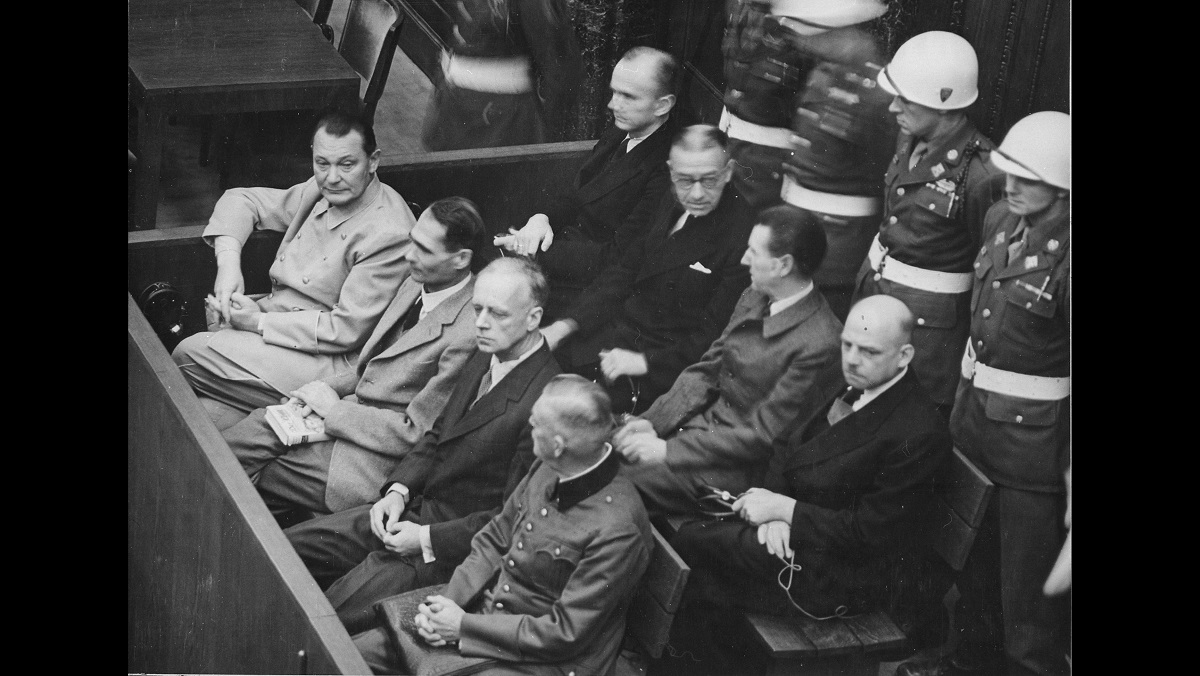
The Law of Armed Conflict (LOAC), also known as international humanitarian law (IHL), is a set of rules that govern warfare and aim to minimize harm to civilians and non-combatants. Alexandra Meise joins podcast editor Ron Granieri to examine the development of LOAC, which stems from treaties like the Geneva Conventions, domestic laws of individual states, and the Rome Statute that established the International Criminal Court. Their conversation delves into war crimes, crimes against humanity, genocide, and the crime of aggression. Alexandra emphasizes the importance of LOAC in providing a framework for accountability in the chaos of war, even if enforcement can be challenging. She stresses that despite its limitations, LOAC serves as a reminder that even in conflict, there must be rules to protect human life and dignity.
War is chaos, and it is hell. But we can have some rules and regulations that we can follow…to minimize the impacts on noncombatants and on others that are engaged in the conflict.
Podcast: Download
Alexandra Meise, JD, is the Women, Peace, and Security Studies Chair, and Visiting Professor of National Security in the Department of National Security and Strategy at the U.S. Army War College. She is an Associate Teaching Professor at Northeastern University School of Law. A second career academic, her work in international relations, rule of law, legal practice, and academia has spanned domestic and international institutions and legal mechanisms across five continents. Her research sits at the intersection of public and private international law, national security, and human rights.
Ron Granieri is Professor of History and the Chair of the Department of National Security and Strategy at the U.S. Army War College and the Editor of A BETTER PEACE.
The views expressed in this presentation are those of the speakers and do not necessarily reflect those of the U.S. Army War College, U.S. Army, or Department of Defense.
Photo Description: Defendants in the dock at the Nuremberg Trials, circa 1945-1946.
(in front row, from left to right): Hermann Göring, Rudolf Heß, Joachim von Ribbentrop, Wilhelm Keitel
(in second row, from left to right): Karl Dönitz, Erich Raeder, Baldur von Schirach, Fritz Sauckel
Photo Credit: Courtesy of National Archives and Records Administration





1. From the first two paragraphs from Sir Adam Roberts “Transformative Military Occupations: Applying the Laws of War and Human Rights:”
“Within the existing framework of international law, is it legitimate for an occupying power, in the name of creating the conditions for a more democratic and peaceful state, to introduce fundamental changes in the constitutional, social, economic, and legal order within an occupied territory? …
These questions have arisen in various conflicts and occupations since 1945 — including the tragic situation in Iraq since the United States-led invasion of Mar-April 2003. They have arisen because of the cautious, even restrictive assumption in the laws of war (also called international humanitarian law or, traditionally, jus in bello) that occupying powers should respect the existing laws and economic arrangements within the occupied territory, and should therefore, by implication, make as few changes as possible. … ”
2. From the second and third paragraphs of the Strategy Bridge article “Strategy, War, and Culture: #Reviewing Military Anthropology” by Julian Koeck:
“Modern wars are often about changing other cultures. While many wars in history were about enrichment and honor, modern wars often pursue goals that aim at the annihilation of certain cultural traits like Prussian militarism after 1945 or the creation of new ones like a democratic way of life. The contemporary American wars of the 2000s are paradigmatic examples for this.
In these wars, strategy is the art of implementing enduring cultural change in a foreign culture to further a state’s own interest. … ”
Question — Based on the Above:
If, as per my item No. 1 above, the laws of war and human rights demand that war-makers must respect the existing laws and economic arrangements, the culture, etc., of other states and societies, and should, therefore, “make as few changes as possible.”
Then, as per my item No. 2 above, how can it be that the common — and indeed flagrant — nature and character of “modern wars,” this is as relates to the efforts by war-makers to “change the cultures” of other states and societies?
(Thus, if the goal of the laws of war is to “minimize harm to civilians and non-combatants,” then might this be easily accomplished; this, for example, by simply enforcing, in some manner, the requirements, the spirit, of that portion of the laws of war that I describe at my item No. 1 above?)